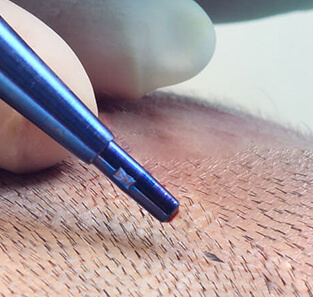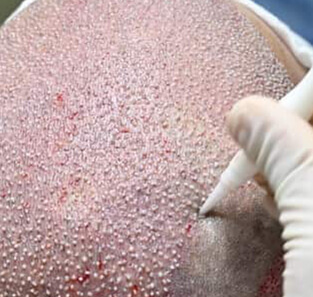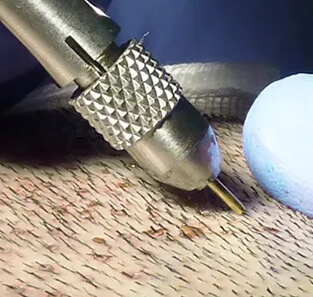-
 where ourexperiences providesyou with results!
where ourexperiences providesyou with results!
-

Hair Transplant Istanbul
Where Experience Brings
Stunning Results
Request for a Free Consultation
At The Hair Transplant Istanbul in Turkey, our team consists of seasoned and skilled physicians who specialize in hair transplantation. We utilize cutting-edge technologies to provide our patients with reliable and optimal outcomes. Please provide us with your contact details, and we will promptly respond to your inquiry.
Treatments storıes

At The Hair Transplant Istanbul in Turkey, our team consists of seasoned and skilled physicians who specialize in hair transplantation. As one of the leading hair transplant clinics in Istanbul, we utilize cutting-edge technologies to provide our patients with reliable and optimal outcomes. Please provide us with your contact details, and we will promptly respond to your inquiry.
HaIr Loss Treatments and Replacement TechnIques
Hair Loss Can Be Reversed WithThe Right Treatment and Care
Take a moment to hear from our patients about their hair transplant experiences at Hair Transplant Istanbul.
Before & After Photos of Real Patients
Best Destination for Hair Transplantation
Turkey is one of the best destinations for hair transplantation, and it is at the forefront of preferred countries worldwide due to its rapidly growing health tourism potential. This is largely due to the quality health services that have been achieved through the Health Transformation Program in recent years.
Frequently Asked Questions
It is an aesthetic surgery performed under local anesthesia, in operating rooms, by doctors.
As with any surgical procedure, hair transplantation carries some risks. The potential risks of getting a hair transplant include bleeding, infection, scarring, swelling, and pain. In some cases, patients may experience a loss of sensation in the treated area or develop cysts or pimples. Additionally, there is a small risk of the transplanted hair not taking root or growing as expected. It is important to choose a reputable clinic and an experienced surgeon to minimize these risks and ensure the best possible outcome.
Before getting a hair transplant, several preparations may be needed. Some common preparations include:
Medical evaluation: A medical evaluation may be required to assess the patient’s overall health and determine if they are a suitable candidate for the procedure.
Medication review: The patient may need to discontinue certain medications, such as blood thinners, that could increase the risk of bleeding during the procedure.
Hair care: The patient may need to prepare their scalp by washing their hair thoroughly and avoiding hair products or styling for a few days before the procedure.
Lifestyle changes: The patient may need to make temporary changes, such as avoiding alcohol and smoking, to promote optimal healing after the procedure.
It is essential to follow the specific instructions provided by our team to ensure the best possible outcome.
Not everyone is a suitable candidate for a hair transplant. Generally, individuals who have experienced hair loss due to male or female pattern baldness are good candidates. Those with hair loss due to other medical conditions or medications may need to address the underlying issue before undergoing a transplant. The ideal candidate for a hair transplant has good overall health, a stable donor area with healthy hair follicles, and realistic expectations for the outcome. It is important to consult with a qualified hair transplant specialist to determine if you are a good candidate for the procedure.
While most people with hair loss are good candidates for a hair transplant, there are some situations where a transplant may not be recommended. People with certain medical conditions, such as bleeding disorders or autoimmune diseases, may not be suitable candidates for the procedure. Additionally, those with a limited donor area, unrealistic expectations for the outcome, or those experiencing ongoing hair loss may not be good candidates. It is important to consult with a qualified hair transplant specialist to determine if you are a suitable candidate for the procedure.
It is generally not recommended to have a hair transplant before complete hair loss occurs. Hair loss can be progressive, and a hair transplant performed too early may not address all areas of hair loss. In some cases, additional procedures may be needed in the future to maintain a consistent and natural-looking hairline. It is important to consult with a qualified hair transplant specialist to determine the best timing for the procedure based on your individual hair loss pattern and goals.
It is possible to undergo a hair transplant without cutting the existing hair, depending on the technique used. Some hair transplant methods, such as FUE (Follicular Unit Extraction), involve extracting individual hair follicles from the donor area and transplanting them into the recipient area without the need for a linear incision or shaving of the hair. However, some trimming or shaving of the hair may still be necessary to ensure optimal results. It is important to consult with a qualified hair transplant specialist to determine the best technique for your individual needs and goals.
The duration of the hair transplant procedure varies depending on the number of grafts being transplanted and the technique used. Generally, a hair transplant can take anywhere from several hours to a full day or more. FUE (Follicular Unit Extraction) procedures typically take less time than FUT (Follicular Unit Transplantation) procedures, which involve removing a strip of skin from the donor area. Patients should expect to spend some time in recovery after the procedure and may need to take a few days off work or other activities. It is important to consult with a qualified hair transplant specialist to determine the expected duration of the procedure based on your individual needs and goals.
No, it is not necessary to stay in the hospital after hair transplantation. Hair transplantation is typically an outpatient procedure that is performed in a clinic or medical center. Patients can usually go home the same day as the procedure, although they may need to arrange for someone to drive them home if they have been given sedation or other medication during the procedure. After the procedure, patients will be provided with post-operative care instructions and may need to schedule follow-up appointments with their hair transplant
Yes, dressing is usually required after hair transplantation to protect the newly transplanted hair follicles and minimize the risk of infection. The dressing may include a special bandage or cap that is placed over the scalp to keep the area clean and prevent damage to the grafts. The dressing may need to be worn for a few days after the procedure and should be removed according to the hair transplant specialist’s instructions. It is important to follow all post-operative care instructions carefully to ensure the best possible outcome and avoid any complications.
The post-operative instructions after hair transplant may vary depending on the technique used and the individual patient’s needs. However, some general instructions may include:
- Avoiding strenuous activities for a few days after the procedure to prevent damage to the grafts.
- Keeping the scalp clean and dry for the first few days after the procedure.
- Avoiding touching or scratching the scalp.
- Avoiding smoking and drinking alcohol for a few days after the procedure as these activities can interfere with the healing process.
- Taking prescribed medications as directed by the hair transplant specialist.
- Wearing a protective cap or bandage as instructed.
- Scheduling follow-up appointments with the hair transplant specialist to monitor progress and ensure optimal results.
It is important to follow all post-operative instructions carefully to ensure the best possible outcome and avoid any complications. If you have any questions or concerns about post-operative care, be sure to consult with your hair transplant specialist.
After the scabs from hair transplantation fall off, it is important to follow these instructions:
- Gently wash your scalp with a mild shampoo to remove any residual scabs or debris. Be careful not to rub the scalp too hard or use hot water, as this can damage the grafts.
- Avoid scratching or picking at the scalp, as this can also damage the grafts.
- Continue to avoid strenuous activities or exercise for at least a week after the scabs fall off to allow the scalp to heal properly.
- Avoid exposing your scalp to direct sunlight or other sources of heat, such as saunas or hot tubs, for at least a month after the procedure.
- Be patient and allow time for the transplanted hair to grow. It can take several months for the hair to start growing in, and up to a year for the full results to be visible.
It is important to follow all post-operative care instructions provided by your hair transplant specialist to ensure the best possible outcome and avoid any complications. If you have any questions or concerns about post-operative care, be sure to consult with your specialist.
It’s normal for the transplanted hair to fall out within the first few weeks after a hair transplant. This is because the transplanted hairs go into a “resting phase” after the procedure, which can last several weeks. After this period, the transplanted hairs will begin to grow back.
It’s important to note that not all transplanted hairs will fall out, and some may continue to grow immediately after the procedure. The hair that grows back after a hair transplant is typically permanent, as it’s taken from a donor area on the scalp that is genetically resistant to hair loss.
However, it’s possible for some of the transplanted hairs to not survive the procedure or fall out due to improper post-operative care or other factors. This is why it’s important to follow all post-operative care instructions provided by your hair transplant specialist and have realistic expectations for the results of the procedure.
Yes, it’s common to experience redness on the scalp after a hair transplant procedure. The redness is typically caused by inflammation and irritation of the scalp due to the trauma of the procedure.
The severity and duration of the redness can vary depending on the individual’s skin type and the specific techniques used during the procedure. Some patients may experience mild redness for a few days, while others may have more significant redness that lasts for several weeks.
To help minimize the redness and inflammation, it’s important to follow all post-operative care instructions provided by your hair transplant specialist, including avoiding strenuous physical activity, exposure to direct sunlight, and using any prescribed medications or topical treatments. It’s also important to be patient and allow your body time to heal and recover fully from the procedure.
Turkey has become a popular destination for hair transplants due to the high quality and affordability of the procedures. Many experienced and reputable hair transplant clinics are located in Turkey, and the country has become known for its skilled surgeons, state-of-the-art facilities, and advanced techniques. Additionally, the cost of hair transplant procedures in Turkey is often significantly lower than in many other countries, making it an attractive option for patients seeking affordable hair restoration. However, the decision of where to undergo a hair transplant ultimately depends on individual factors such as budget, medical history, and personal preferences. It’s important to do thorough research and consult with a qualified hair transplant specialist to determine the best choice for your specific needs and goals.
Read more about how Turkey became #1 hair transplant destination
To choose the best hair transplant clinic in Turkey, consider the clinic’s experience, reputation, results, patient reviews, and pricing. Research multiple clinics and compare them to make an informed decision.
Take a Glimpse Into the Experiences of Our Patients.




About Us
At The Hair Transplant Istanbul in Turkey, our team consists of seasoned and skilled physicians who specialize in hair transplantation. We utilize cutting-edge technologies to provide our patients with reliable and optimal outcomes. Please provide us with your contact details, and we will promptly respond to your inquiry.
+90 212 909 1725
hello@hairtransplantsistanbul.com
Dikilitaş, Yenidoğan Sok. No:7, 34349 Besiktas, Istanbul, Turkey

Quick Links
Treatments
- FUE Hair Transplant
- DHI Hair Transplant Clinic in Istanbul
- Sapphire Hair Transplant Clinic in Istanbul
- Unshaven Hair Transplant Clinic in Istanbul
- Beard Transplant Clinic in Istanbul
- Eyebrow Hair Transplant Clinic in Istanbul
- Moustache Hair Transplant Clinic in Istanbul
- Hair Loss Mesotherapy Treatment in Istanbul
- Switch Language
Blog
- About Us
- Treatments
- FUE Hair Transplant
- DHI Hair Transplant Clinic in Istanbul
- Sapphire Hair Transplant Clinic in Istanbul
- Unshaven Hair Transplant Clinic in Istanbul
- Beard Transplant Clinic in Istanbul
- Eyebrow Hair Transplant Clinic in Istanbul
- Moustache Hair Transplant Clinic in Istanbul
- Hair Mesotherapy
- Hair Loss for Women
- Testimonials
- Before & After
- Blog
- Contact
- FUE Hair Transplant
- DHI Hair Transplant Clinic in Istanbul
- Sapphire Hair Transplant Clinic in Istanbul
- Unshaven Hair Transplant Clinic in Istanbul
- Beard Transplant Clinic in Istanbul
- Eyebrow Hair Transplant Clinic in Istanbul
- Moustache Hair Transplant Clinic in Istanbul
- Hair Loss Mesotherapy Treatment in Istanbul
- Switch Language





